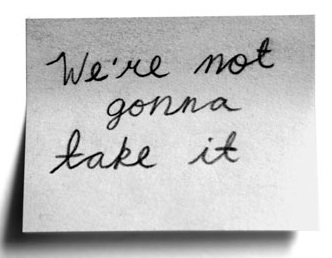-
![postit1 A Post-It Note for the dispossessed? [NYT]](https://owenyoungman.com/thenextmiracle/wp-content/uploads/2009/04/postit1-300x233.jpg)
A Post-It Note for the dispossessed? (NYT)
The other day in the NYT, Columbia professor Sudhir Venkatesh nodded in the direction of changes in communication as a cause for Americans’ apathetic non-reaction to the multiple crises swirling around them.
Yes, he also laid some responsibility on consumer debt and the shame that comes with being unable to emerge from under crushing personal financial obligations. [Perhaps that’s not unlike the shame that comes with being unable to clear your email inbox, or in feeling hopelessly behind in keeping up with people you know, love, respect, or need to work with.]
The selection of letters published today alternately takes issue with or supports his premises, as good selections of letters are wont to do. I generally find myself in agreement with the writer who says, “Technology has helped us stay informed, stay balanced, and express ourselves in a nonviolent way. So far.”
Perhaps it is the fault of my Scandinavian inclination to facilitate discussion and mitigate conflict, but I’m not sure seeing folks surge into the boulevards or hold their managers hostage, à la mode française, is something to be pined for. Not that tweets, discussion boards, and emailed petitions are the answer, either. But access – access to information; access to opinion; access to other people; access to government; access, in fact, to access – is overall an aid to understanding, and understanding is ultimately what gives rise to longer-term, positive change.
[“But what about Bill O’Reilly, Rush Limbaugh, and Jeff Jarvis?” you ask. Yes, what about them? Richard J. Daley, 1968: “Those protesters, what trees did they plant?”]
Anyway, the piece that started the discussion:
Before blogs and radio call-in shows, people joined forces and turned to the streets as their most effective means of expression; a unified, angry crowd was often sufficient to win concessions from employers and governments. … Today widespread anger and collective passivity exist side by side.
[T]hese days, technology separates us and makes more of our communication indirect, impersonal and emotionally flat. With headsets on and our hands busily texting, we are less aware of one another’s behavior in public space. Count the number of people with cellphones and personal entertainment devices when you walk down a street. Self-involved bloggers, readers of niche news, all of us listening to our personal playlists: we narrowly miss each other. Effective rebellions require that we sing in unison.
